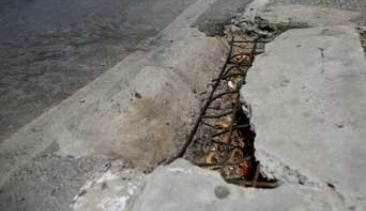BEST California Bad Faith Insurance Attorneys for Personal Injuries Near You
In California, many individuals pay insurance premiums with the expectation that they will be protected in the event of an accident, such as a slip and fall, car crash, pedestrian incident, or any instance of personal injury. Whether through homeowners, auto, or commercial property insurance, policyholders believe they are covered when they purchase a policy and submit their premiums. These policies provide peace of mind, as they are intended to cover damages and offer compensation to victims if the policyholder is found liable for any injuries caused by an accident. However, insurance companies also have their own priorities, primarily focused on maximizing their profits. One common method insurers use to achieve this is by denying claims they deem fraudulent or unfounded. When insurers wrongfully deny or fail to respond to valid insurance claims in an effort to avoid payment, this may constitute bad faith insurance practices. Essentially, this represents a breach of the trust that policyholders place in their insurers to act fairly and in good faith.
At Levinson Law Group, our team of injury insurance claim lawyers is highly experienced in holding insurance companies accountable when they fail to fulfill their duty to compensate accident victims in California. Our bad faith insurance attorneys understand the strategies insurers may employ to reject or delay legitimate claims, leaving victims without the compensation they need to cover medical expenses, lost income, and other damages. We are committed to safeguarding the rights of individuals who have been harmed by bad faith practices, fighting to ensure that insurance companies honor their obligations. With a dedication to justice and a thorough understanding of California insurance law, Levinson Law Group tirelessly advocates for personal injury accident victims to receive the full compensation they are entitled to.
On this page:
What is Bad Faith? | Examples of Bad Faith Practices By Insurance Companies | Injured in an Accident? How Is Bad Faith Determined in CA for Insurance Companies?
What is Bad Faith?
Bad faith insurance practices arise when an insurance company fails to fulfill its obligations under the terms of the insurance policy it has sold, thereby breaching the trust that policyholders place in the insurer. At its core, insurance coverage represents a contract in which the policyholder pays premiums, and in exchange, the insurance company agrees to:
- Provide coverage for personal injury and other damages
- Uphold the terms of the policy
- Pay valid claims as stipulated
Legally, insurance companies are required to act in good faith. This means they must handle all insurance claims, including personal injury claims, fairly, promptly, and without unjustified denial or delay.
When an insurance company unreasonably refuses to meet these obligations, it is deemed to be acting in “bad faith.” This can occur in a variety of situations. Bad faith practices are not only unethical but also violate the legal duty of fair dealing and good faith that insurers owe to their policyholders. Such actions can leave policyholders financially strained, especially when they are unable to return to work due to injuries and are denied the protection they paid for. For this reason, it is crucial for California accident victims to understand their rights and ensure that insurance companies are held accountable for their actions.
Examples of Personal Injury Bad Faith Practices By California Insurance Companies
Under California law, certain actions and behaviors by insurance companies are specifically categorized as “bad faith” practices. Bad faith refers to an insurer’s unreasonable failure to meet its contractual obligations to policyholders, who are entitled to fair treatment and the prompt, proper handling of their insurance claims. When insurance companies fail to adhere to these standards, they can be held accountable for bad faith practices under California law. Common examples of insurance companies engaging in bad faith include:
- Misrepresenting facts or policy provisions to the person filing the injury claim
- Failing to provide a prompt or reasonable justification for denying an injury claim
- Unreasonably denying policy benefits for personal injuries
- Failing to respond or act promptly regarding an injury claim
- Lacking reasonable standards for the timely investigation and processing of injury claims
- Failing to approve or deny injury claims within a reasonable timeframe after receiving adequate proof of loss
- Refusing to make a good faith effort to settle injury claims when liability is reasonably clear, or attempting to influence parts of the claim by not settling other parts
- Compelling the insured to litigate by refusing to offer a fair settlement for their injury case
- Attempting to settle for an unreasonable amount compared to promotional materials provided during the application process
- Using an application altered without the insured’s knowledge or consent to settle said injury claims
- Threatening to appeal an arbitration award to coerce the insured into accepting a lower injury settlement amount
- Advising injury victim claimants not to hire an attorney
- Misleading a injury victim claimant regarding the legal deadline for filing a claim or lawsuit
Each of these actions taken by an insurance company after a claim has been filed violates the policyholder’s right to fair treatment. California law provides legal recourse for those who are affected by such bad faith practices.
How Is Injury Claim Bad Faith Determined in CA for Insurance Companies?
In California, an insurance company’s actions are considered to be in “bad faith” when the company unreasonably denies, delays, or mishandles a legitimate personal injury claim. To determine if an insurer is acting in bad faith, courts assess whether the company has breached its legal obligation to act in good faith and engage in fair dealing with policyholders. Not every denied accident claim amounts to bad faith. Typically, bad faith is identified by a pattern of unreasonable behavior. This could include actions like denying a claim without cause, failing to provide necessary legal defense when required, or misrepresenting the terms of an insurance policy.
Below are key factors that courts consider when determining if an insurer has acted in bad faith in California. If you believe an insurance company may be engaging in any of these practices, reach out to a bad faith insurance attorney at Levinson Law Group for guidance.
- Unreasonable Claim Denial: If you file a claim after an accident and it’s denied without a clear or legitimate explanation, it could be a sign of bad faith. Insurance companies sometimes use ambiguous language or vague terms to justify denials, in hopes that policyholders won’t challenge their reasoning. Consulting with a bad faith lawyer can help determine whether the denial is unjust.
- Failure to Defend: If you’re at fault in an accident and face a lawsuit, your insurance company is required to provide a legal defense under the terms of your insurance policy. If the insurer neglects this duty, it may signal that they are acting in bad faith.
- Unwarranted Fraud Accusations: If an insurance provider accuses you of fraud without evidence when filing a claim, this can be a sign of bad faith. Insurers may use these allegations as a justification for denying claims, referencing policy clauses about misrepresentation. Knowing your rights and consulting with one of our bad faith insurance attorneys can help protect you against unfounded accusations.
- Unreasonable Delay: Insurance providers are obligated to promptly assess claims, especially in urgent situations, such as accidents resulting in property damage or personal injury. If an insurer intentionally delays processing the claim, it may be a tactic to avoid paying the victim promptly, a common bad faith strategy.
- Policy Rescission or Cancellation: While insurers can rescind or cancel policies under certain conditions, canceling a policy to avoid paying a claim can be considered bad faith. If you suspect that your policy was unfairly canceled to evade paying a legitimate claim, taking legal action might be necessary.
Speak With Our Experienced California Injury Claim Bad Faith Insurance Lawyers Today!
The tactics used by insurance companies not only delay the personal injury claims process but also risk other coverages lapsing, leaving policyholders vulnerable. In many cases, these disputes arise because policyholders don’t fully understand what is covered under liability insurance, which is why reviewing recommended auto insurance coverage in California can help identify where insurers may be underpaying or acting in bad faith.
If you suspect bad faith practices, it’s essential to seek help from a bad faith lawyer who specializes in bad faith personal injury insurance claims. A skilled attorney can advocate for your rights, protect your interests, and help ensure you receive the compensation you’re entitled to. To explore your legal options, contact The Levinson Law Group at 760-388-6480.
TL;DR
- We help California accident victims understand whether their insurer wrongfully denied, delayed, or mishandled a valid injury claim under homeowners, auto, or commercial insurance policies.
- We identify the specific bad faith tactics an insurance company may be using, including unreasonable denials, misrepresenting policy terms, delaying investigations, lowball offers, coerced settlements, or failure to defend you.
- We gather and analyze critical evidence such as claim files, denial letters, recorded statements, policy language, timelines, communications, and proof of loss to build a strong case.
- We fight for all compensation you’re entitled to when an insurer acts in bad faith: full policy benefits, financial losses from the delay, emotional distress damages, attorney’s fees, and in some cases punitive damages.
- We guide you through exactly how California determines insurance bad faith. This includes unreasonable conduct, lack of proper investigation, policy cancellations to avoid payment, or false fraud accusations.
- We protect you from insurers who try to pressure you, minimize your injuries, or mislead you about your rights and deadlines after an accident.
- We work on contingency, so you pay nothing unless we win your case.
- We take your case seriously from day one, negotiating aggressively with insurers or filing a lawsuit when needed to hold them accountable and get you the compensation you deserve.








